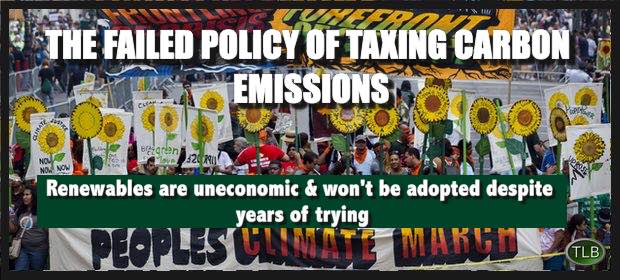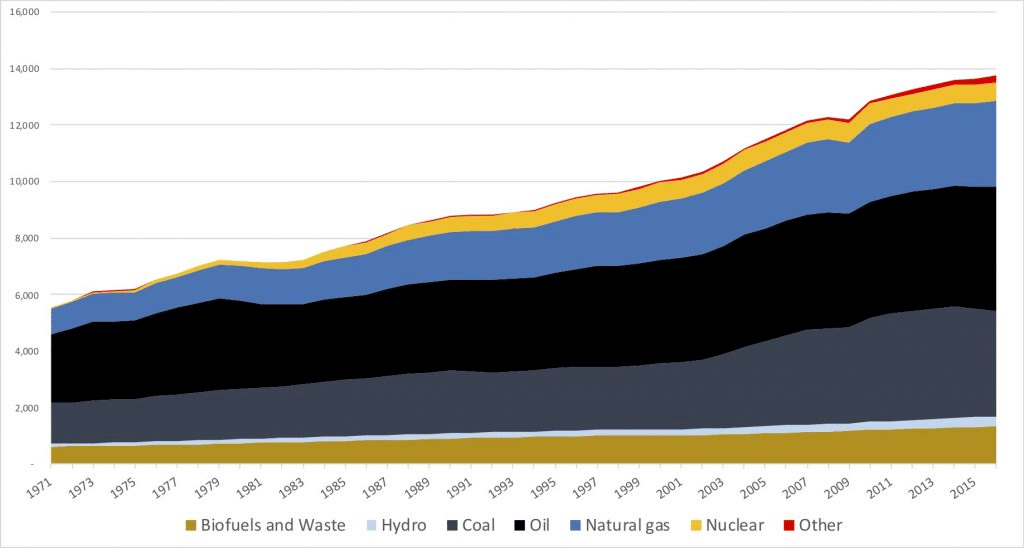
Climate Alarmism Is In Retreat Across The World
TECHNOCRACY NEWS
Climate change has been the UN’s sole driving mantra to push its only solution, Sustainable Development. If Global Warming is indeed discredited in the people’s eyes, the global Technocrats will find another reason to implement Sustainable Development. ⁃ TN Editor
JAMES DELINGPOLE
From Poland to France, from Canada to the U.S, the climate alarmists are in retreat as the public begins to tire of their taxes, their constrictive regulations, their dodgy, ugly, inefficient renewable projects and their hysterical junk science scare stories. Economics is beginning to reassert itself over green propaganda.
At the UN climate summit in Katowice, Poland, a pro-energy faction of oil-producing nations – led by the U.S. – has caused huge upset to the greenies by refusing to endorse the latest scaremongering report from the Intergovernmental Panel on Climate Change (IPCC).
According to Associated Press:
A diplomatic standoff over a single word could set the stage for a bigger showdown during the second half of this year’s U.N. climate summit. Negotiators took time out Sunday to rest after the first week of talks ended on a sour note the previous night, when the United States sided with Russia, Saudi Arabia and Kuwait in blocking endorsement of a landmark study on global warming.
The US State Department is unapologetic:
The United States was willing to note the IPCC report and express appreciation to the scientists who developed it, but not to welcome it, as that would denote endorsement of the report. As we have made clear in the IPCC and other bodies, the United States has not endorsed the findings of the report.
According to Politico there is a new scepticism abroad towards green measures like carbon taxes:
This month’s fuel-tax riots in Paris and the defeat of a carbon-fee ballot measure in Washington state show the difficulty of getting people to support a levy on the energy sources that heat their homes and power their cars. Meanwhile, even the most liberal Democratic candidates this year gave carbon taxes scant if any mention in their climate platforms, focusing instead on proposals like a phaseout of fossil fuels and massive investments in wind and solar power.
Except that renewables aren’t working either. Despite massive efforts by governments, especially in Europe, to force a transition from fossil fuels to “clean” energy, the money has been wasted and all those birds and bats sliced and diced by eco-crucifixes have died in vein.
A damning report by John Constable for the Global Warming Policy Foundation shows that, despite years of propaganda and eye-watering subsidies to rent seekers, renewables still represent an all but negligible percentage of global energy production.
For almost as long as there has been a climate policy, emissions reduction has been seen as dependent on the replacement of fossil fuels with renewable energy sources. Policies supporting this outcome are ubiquitous in the developed and developing world; markets have been coerced globally, with varying degrees of severity it is true, but with extraordinary force in the OECD states, and particularly in the European Union. The net result of several decades of such measures has been negligible. Consider, for example the global total primary energy mix since 1971, as recorded in the International Energy Agency datasets, the most recent discussion of which has just been published in the World Energy Outlook (2018):

Figure 1: Global Total Primary Energy Supply: 1971–2015. Source: Redrawn by the author from International Energy Agency, Key World Energy Statistics 2017 and 2018. IEA Notes: 1. World includes international aviation and international marine bunkers. 2. Peat and oil shale are aggregated with coal. 3. “Other” Includes geothermal, solar, wind, tide/wave/ocean, heat and other.
It is perfectly true that the proportional increase in modern renewables, the “Other” category represented by the thin red line at the top of the chart is a significant multiple of the starting base, but even this increase is disappointing given the subsidies involved, and in any case it is almost completely swamped by the increase in overall energy consumption, and that of fossil fuels in particular. Renewables in total, modern renewables plus biofuels and waste and hydro, amounted to about 13% of Total Primary Energy in 1971, and in 2016 are almost unchanged at somewhat under 14%. Thirty years of deployment, almost half of that time under increasingly strong post-Kyoto policies, has seen the proportion of renewable energy in the world’s primary energy input creep up by about one percentage point.
************
Original article
ER recommends other articles by Technocracy News




